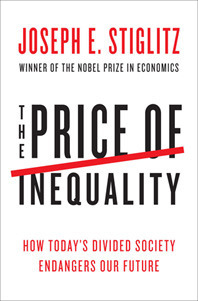What do you think?
Rate this book


414 pages, Hardcover
First published June 11, 2012
"Never before in the history of the planet had so many given so much to so few who were so rich without asking anything in return."It's interesting to note that the financial industry accounts for approximately half the wealth in the United States. It follows that the so called "real" economy lags far behind. In other words, half our wealth is found in paper and pixels. Aren't those the ingredients of a bubble?